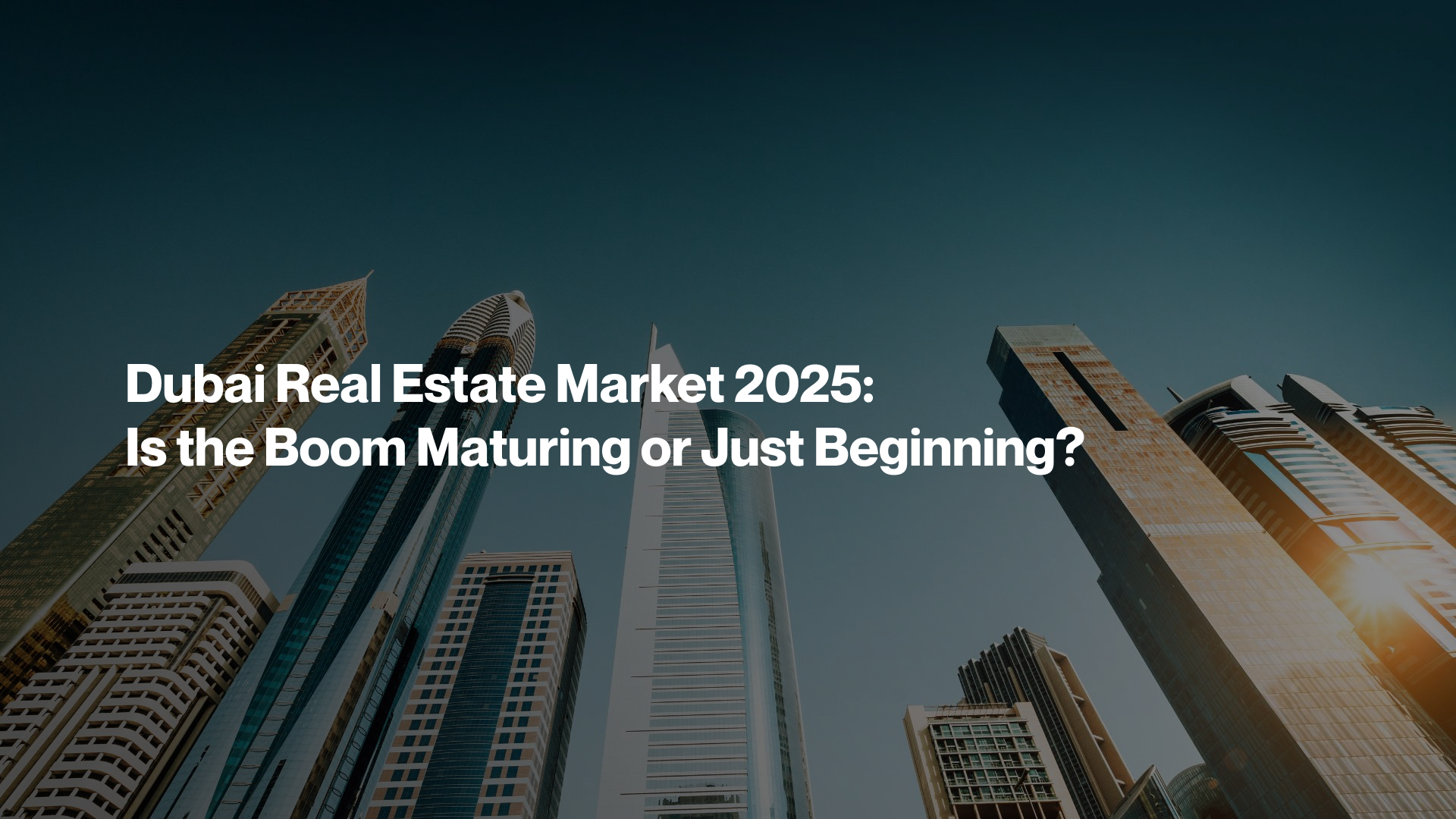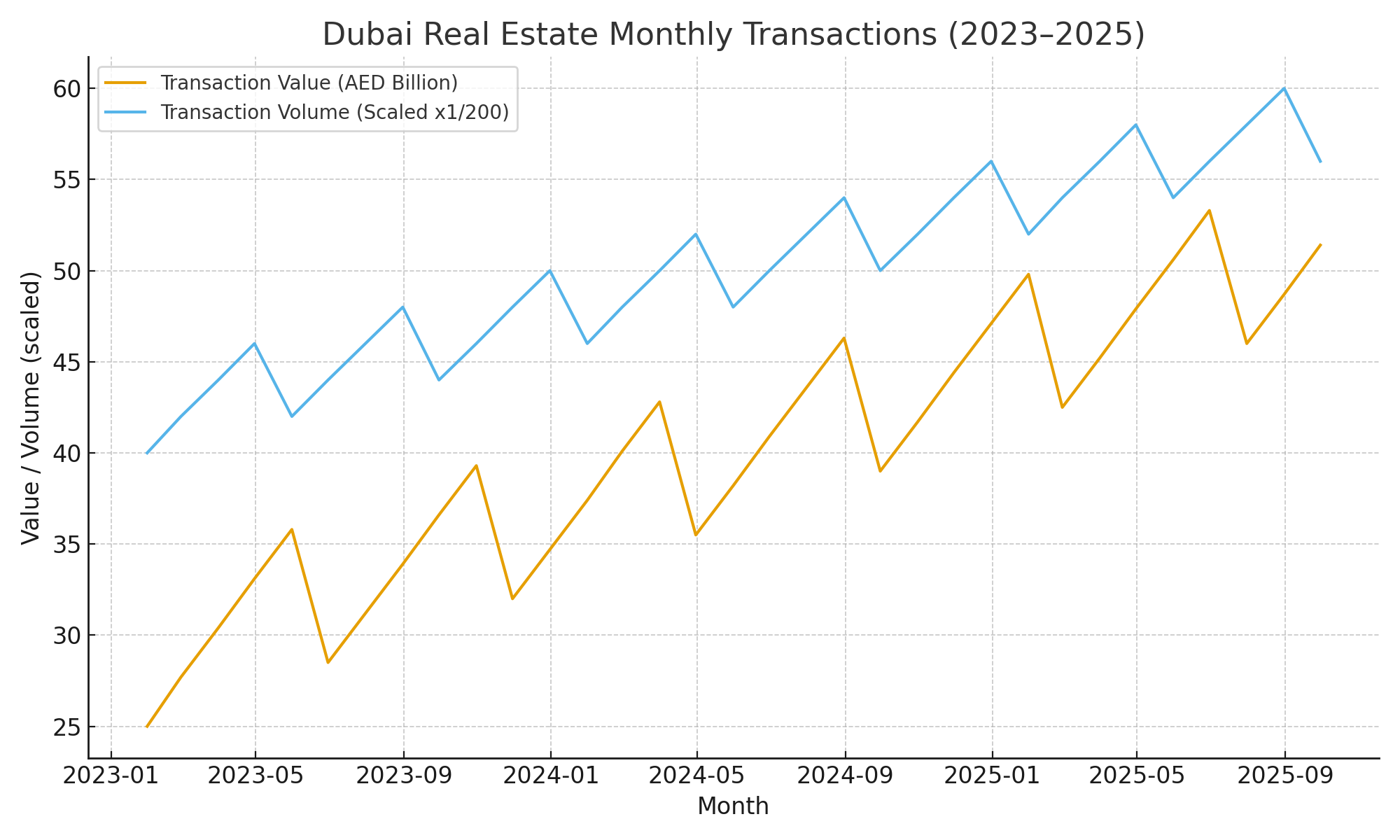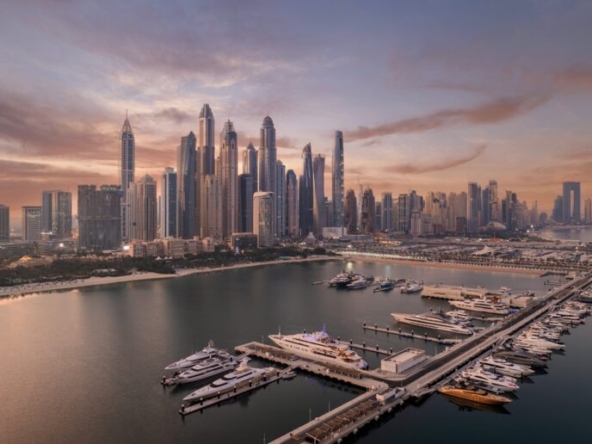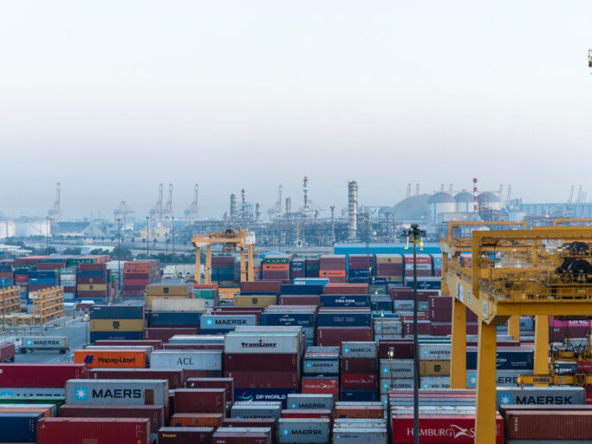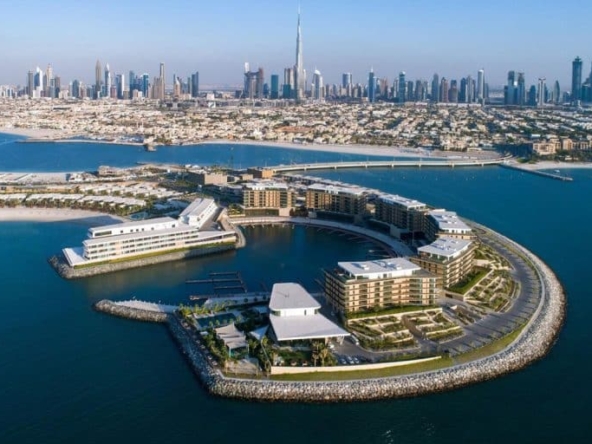The Dubai real estate market stands as one of the world’s most dynamic and resilient property sectors. Over the past two decades, it has evolved from a regional investment hub into a global luxury and commercial powerhouse. As we enter 2025, a crucial question dominates investor conversations: Is the boom finally maturing, or is Dubai’s property market just getting started on another upward trajectory?
This in-depth analysis explores the trends, data, and predictions shaping Dubai’s real estate future — covering residential, commercial, luxury, and emerging investment sectors.
The Evolution of Dubai’s Real Estate Market
From Desert to Global Destination
Dubai’s property story is one of vision and transformation. What began in the early 2000s with projects like Palm Jumeirah and Downtown Dubai has matured into a diverse real estate ecosystem featuring high-end residences, sustainable communities, and innovative commercial spaces.
Government-led initiatives — such as freehold property ownership for foreigners, long-term visas, and zero income tax policies — have solidified Dubai’s reputation as a secure investment haven.
Dubai Real Estate Market in 2025: Key Indicators
1. Continued Price Growth
According to 2025 forecasts, property prices in Dubai are expected to rise between 5% and 7%, led by sustained demand from both international and local investors. Popular areas like Business Bay, Dubai Hills Estate, and Dubai Marina continue to experience double-digit growth in sales transactions.
Luxury segments, particularly villas and waterfront apartments, are outperforming other categories. Limited supply and rising global wealth migration have pushed luxury villa prices up by over 15% year-on-year.
2. Population and Economic Expansion
Dubai’s population is projected to exceed 3.8 million in 2025, driven by new residency schemes and job opportunities in finance, technology, and real estate sectors. The UAE’s GDP continues to grow steadily at around 4%, supported by diversification strategies beyond oil, particularly in tourism, trade, and logistics.
This population surge fuels continuous demand for residential and rental properties, particularly in well-connected areas near Dubai Metro, Expo City, and Dubai South.
Is the Boom Maturing or Just Getting Started?
Market Maturity Indicators
Some analysts believe Dubai’s market is entering a phase of sustainable growth rather than speculative boom. Unlike the 2008 or 2014 cycles, the current surge is supported by end-user demand and tight credit regulations. Developers are more disciplined, and government oversight ensures project delivery and buyer protection.
Mortgage interest rates have stabilized after a period of volatility, encouraging more owner-occupiers to enter the market. The rise in digital real estate platforms has also improved transparency and transaction speed, signaling a maturing investment environment.
Fresh Growth Catalysts
Despite signs of maturity, multiple factors indicate that the boom still has room to grow:
-
Golden Visa Expansion: Long-term residency options for investors, retirees, and skilled professionals are attracting new buyers from Europe, Russia, China, and Africa.
-
Infrastructure Investments: Ongoing mega-projects like Dubai Creek Harbour, Palm Jebel Ali, and The Line of Expo City will reshape the urban landscape.
-
Tech and Green Development: The emergence of smart cities, AI-driven property management, and sustainable construction continues to attract ESG-conscious investors.
Together, these elements suggest the Dubai property market’s momentum is far from over.
Residential Market: Demand for Space and Lifestyle
Villas and Townhouses
Post-pandemic lifestyle shifts have reinforced the desire for spacious homes, leading to high demand in villa communities like Arabian Ranches, Damac Hills, and Tilal Al Ghaf. Families and expatriates are prioritizing private outdoor areas, green spaces, and community amenities.
Apartments and Urban Living
City-center apartments remain appealing to young professionals and investors seeking rental yields averaging between 6% and 8% annually. High-rise projects in Downtown Dubai, Business Bay, and Dubai Creek Harbour offer modern luxury and connectivity — vital attributes in a fast-paced business environment.
Commercial Real Estate: A Rebound in Office and Retail Spaces
The commercial property sector is regaining strength as multinational firms relocate or expand operations to Dubai. The Dubai International Financial Centre (DIFC) and Dubai Internet City remain top choices for premium office spaces.
Co-working environments and hybrid work models are reshaping demand, encouraging flexible space providers like WeWork, Astrolabs, and Letswork to expand across the city.
Meanwhile, the retail sector benefits from tourism resurgence, with record visitor numbers anticipated for 2025. Mall of the World, Dubai Hills Mall, and City Walk continue to draw global brands and high-spending consumers.
Foreign Investment: The Lifeline of Dubai’s Property Success
Top Investor Nationalities
Buyers from India, Russia, the UK, China, and Saudi Arabia dominate Dubai’s property transactions. The emirate’s transparent regulations, high ROI, and safe environment attract foreign direct investment (FDI) that fuels development.
Attractive Yields and Safe Haven Status
Dubai offers some of the highest rental returns globally, especially compared to cities like London, New York, and Singapore. Combined with its tax-free ecosystem and stable currency, Dubai remains a magnet for wealth preservation and diversification.
Sustainability and Smart Living: The Future Blueprint
The Dubai 2040 Urban Master Plan prioritizes green mobility, energy efficiency, and eco-friendly architecture. Developers like Emaar, Sobha Realty, and Meraas are integrating solar energy systems, smart home automation, and water-saving technologies in their new projects.
These initiatives not only support sustainability goals but also enhance long-term property value and investor confidence.
Predictions for 2025 and Beyond
-
Stable Growth: Expect a balanced expansion rate of 5–7% annually.
-
Luxury Dominance: Ultra-luxury properties in Palm Jumeirah and Emirates Hills will maintain strong demand.
-
Tech Integration: Blockchain-based transactions and virtual property tours will redefine real estate efficiency.
-
Rental Market Strength: With rising relocation trends, rents are likely to increase by 10–15% in prime zones.
-
Global Appeal: Dubai’s global connectivity and investor-friendly ecosystem will sustain its leading position in the Middle Eastern property market.
Final Thoughts: The Dubai Real Estate Journey Continues
The Dubai real estate market in 2025 stands at an exciting crossroads — combining maturity with innovation. While the speculative era has evolved into a more structured growth phase, the city’s global vision, investor confidence, and sustainable development strategies ensure continued prosperity.
Whether you are an investor seeking long-term returns or an expatriate looking for a lifestyle upgrade, Dubai remains a city where ambition meets opportunity — and the property boom, it seems, is just beginning.

